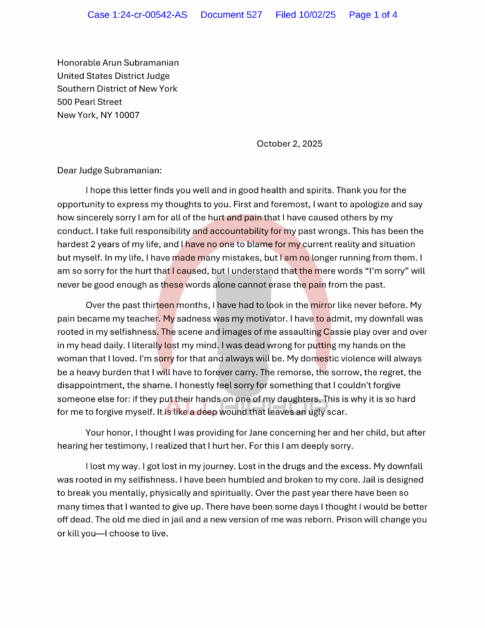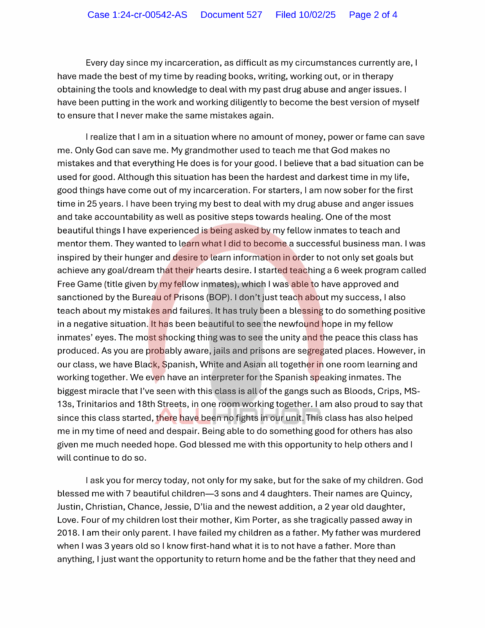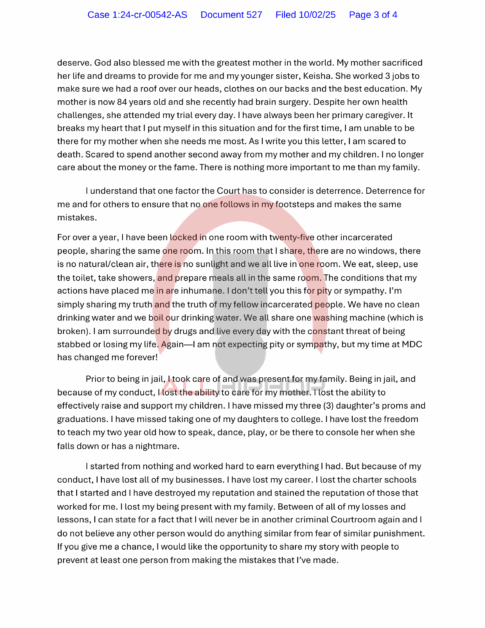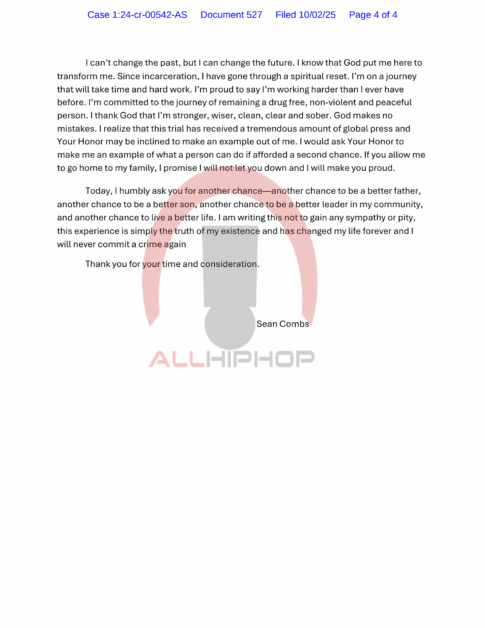Diddy broke his silence with a letter to the judge presiding over his federal case, expressing deep remorse ahead of his October 3 sentencing in New York.
The Hip-Hop mogul, convicted on two counts of transporting women across state lines for prostitution, faces up to 20 years behind bars.
In the emotional letter addressed to U.S. District Judge Arun Subramanian, Diddy took full responsibility for his actions.
“I take full responsibility and accountability for my past wrongs,” he wrote. “This has been the hardest 2 years of my life, and I have no one to blame for my current reality and situation but myself.”
The 55-year-old music executive was found guilty in July by a federal jury, though he was acquitted on more serious charges involving racketeering and sex trafficking by force.
Prosecutors are pushing for a sentence of 135 months—just over 11 years—arguing that Combs remains “unrepentant.”
In his letter, Diddy described a personal transformation that was spurred by his incarceration.
“The old me died in jail and a new version of me was reborn,” he wrote. “Prison will change you or kill you—I choose to live.”
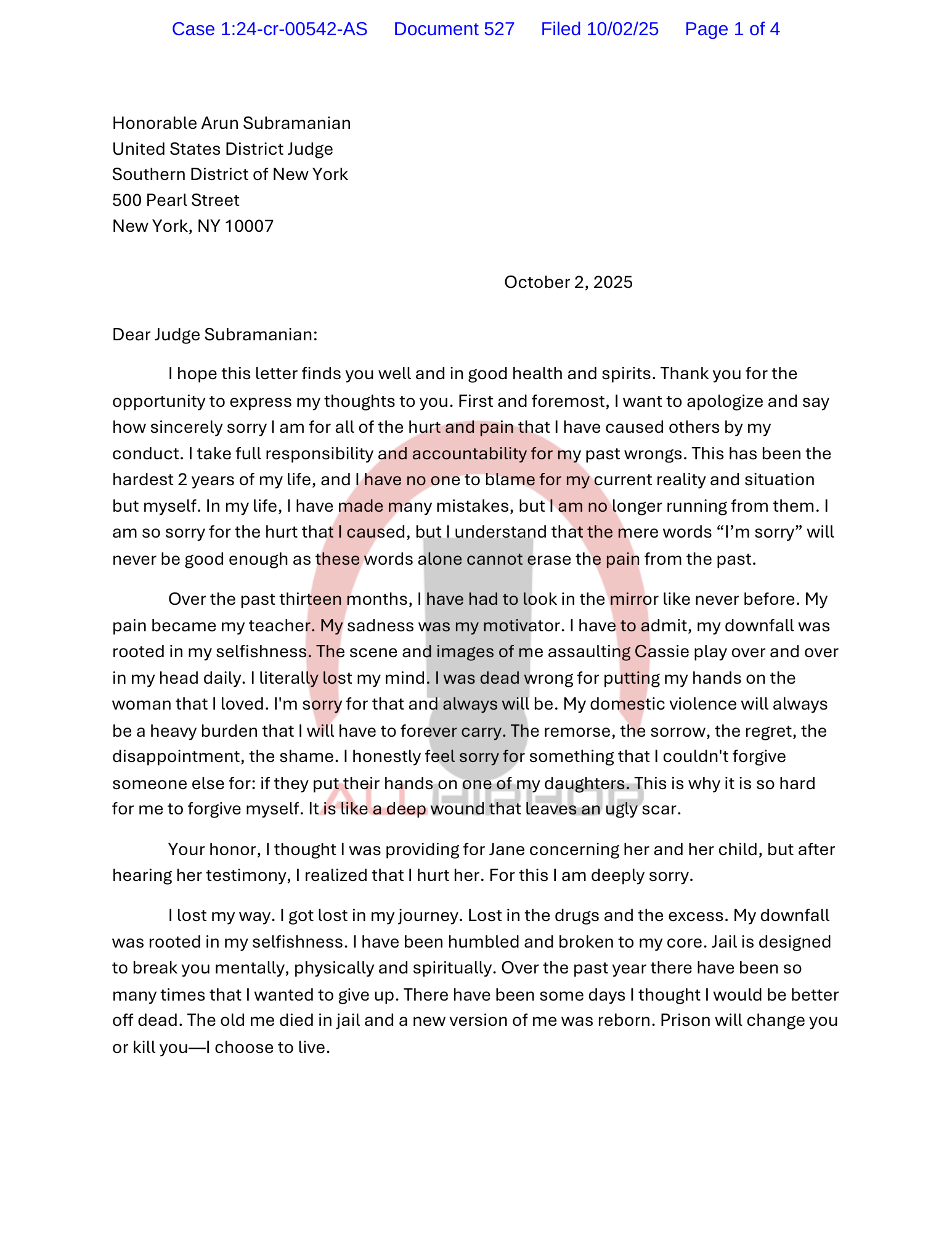
He spoke directly about the abuse of his former partner, Cassie Ventura, whose testimony was a central part of the trial.
“The scene and images of me assaulting Cassie play over and over in my head daily,” Combs admitted. “I was dead wrong for putting my hands on the woman that I loved. I’m sorry for that and always will be.”
Diddy also acknowledged another victim, referred to in court as “Jane.” “Your honor, I thought I was providing for Jane concerning her and her child, but after hearing her testimony, I realized that I hurt her. For this I am deeply sorry.”
The letter, submitted ahead of Friday’s sentencing, marks Diddy’s first public statement since his conviction.
Prosecutors emphasized the lasting trauma inflicted on the victims, stating Diddy “should serve a sentence that reflects the gravity of these crimes.” They argued that his wealth and fame enabled his behavior and that he has shown little genuine remorse.
In contrast, Diddy’s attorneys are requesting a reduced sentence of 14 months, noting that he has already served 13 months in custody. They claim he has made strides toward rehabilitation, including therapy and sobriety.
Diddy echoed that sentiment in his letter. “Every day since my incarceration, as difficult as my circumstances currently are, I have made the best of my time by reading books, writing, working out, or in therapy obtaining the tools and knowledge to deal with my past drug abuse and anger issues.”
He also reflected on the spiritual aspect of his journey.
“I realize that I am in a situation where no amount of money, power or fame can save me. Only God can save me,” Diddy wrote.
Diddy said he has now been sober for the first time in 25 years and credited his grandmother’s teachings for helping him find meaning in his lowest moments.
“My grandmother used to teach me that God makes no mistakes and that everything He does is for your good.”
The sentencing hearing is expected to include victim impact statements, including one from Diddy’s former assistant “Mia,” who will read a five-minute statement in court.
Diddy also plans to speak directly to the judge during the hearing, a rare move that emphasizes the gravity of the moment.
Federal sentencing guidelines suggest a range of five to seven years, but Judge Subramanian has broad discretion.
The final decision will hinge on multiple factors, including the letter, courtroom testimony and the judge’s interpretation of Diddy’s remorse and rehabilitation.
